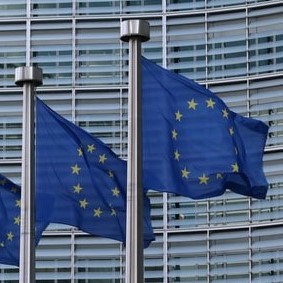Eurobites: Roam 'like at home' until 2032, says EU
Also in today's EMEA regional roundup: FiberCop signs up another provider in Italy; TIP gets behind open RAN in the UK; how to find your stolen Volvo.

Also in today's EMEA regional roundup: FiberCop signs up another provider in Italy; TIP gets behind open RAN in the UK; how to find your stolen Volvo.
The European Commission has welcomed an agreement reached between the European Parliament and EU member states which means that the existing "roam like at home" system in the bloc – whereby European Union citizens cannot be subject to extra charges for calls or data used while traveling within the EU – will remain in place until at least 2032. The agreement also guarantees that consumers who usually have 5G services at home will also be able to enjoy 5G roaming services where they are available and offers a number of other protections against potential bill shock. On the wholesale side, lower caps have been set – for full details of the various caps that will apply, see this European Commission statement.
Netoip has become the latest Italian broadband provider to sign up to the FiberCop co-investment project. Under the terms of the agreement, Netoip will be able to use FiberCop's fiber-optic secondary access network to develop the FTTH access market in nine municipalities in Italy's Marche region and in other municipalities in the regions of Calabria, Sicily and Sardinia. FiberCop is a "last mile" infrastructure company controlled by Telecom Italia (TIM) together with KKR Infrastructure and Fastweb. (See FiberCop is go after KKR and Fastweb firm up stakes.)
The Telecom Infra Project (TIP) is to launch a new consortium backed by UK government funding to speed up open RAN deployment in Britain and beyond. The "Accelerating RAN Intelligence in 5G" (ARI-5G) consortium comprises Accelleran, Amdocs, AttoCore, BT, West Midlands 5G and Viavi. It will set out to find uses for open and disaggregated network set-ups, with the focus on innovation in 5G power consumption, energy efficiency and spectrum management, including massive MIMO optimization. (See The UK government is losing its open RAN faith and Britain's got open RAN talent, hopes clueless govt.)
Volvo's UK subsidiary has opted for IoT technology from Vodafone to help its customers track down stolen cars. The Vodafone Automotive VTS S5 gizmo provides vehicle tracking and recovery via Vodafone Automotive's network of Secure Operating Centres and can pinpoint a car's location down to 10 metres.
In Spain, Telefónica has joined forces with Dekra, an automotive safety company, to demonstrate a 5G-based cybersecurity system that could make connected mobility more secure. Such a system could, for example, ensure that an emergency vehicle can prioritize its route by making all traffic lights turn green on its way to the hospital and advising vehicles in its way to give it priority. The initiative is being hosted by the Galician Automotive Technology Center.
New research from Orange confirms our worst cybersecurity fears: There has been a 13% increase in cyberattacks on enterprises over the past 12 months, with smartphones bearing the brunt of the onslaught. The Security Navigator 2022 report provides analysis of more than 50 billion security "events" over the past year by Orange Cyberdefense's 18 security operation centers (SOCs) and 14 CyberSOCs across the world. Interestingly, the research also found an inverse correlation between the strictness of COVID-19 lockdowns and the volumes of ransomware activity: the stricter the lockdown, the less there was of this activity, which runs counter to the prevailing narrative that such attacks increase when more folk are working from home.
— Paul Rainford, Assistant Editor, Europe, Light Reading
Read more about:
EuropeAbout the Author(s)
You May Also Like












